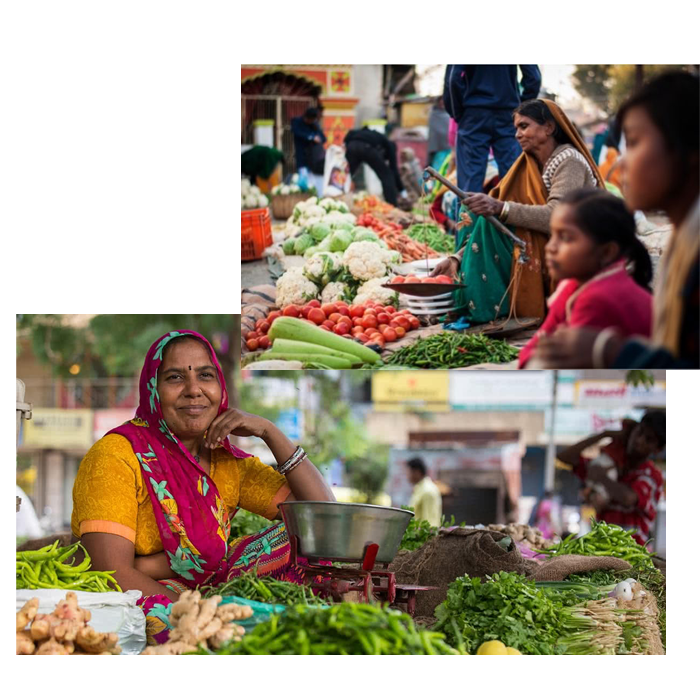"We deliver valuable services at affordable rates and create our own employment opportunities; then why should we be treated as criminals?"
A person who offers goods or services for sale to the public without having a permanently built structure or via mobile stall.
Street Vendors
A street vendor is a person who offers goods or services for sale to the public without possessing a permanently built structure but a temporary static structure or mobile stall (or head-load). Street vendors can be stationary and occupy space on the pavements or other public/private areas, or could be mobile, and move from place to place carrying their wares on push carts or in cycles or baskets on their heads, or could sell their wares in moving buses.The women vendors that SEWA in Delhi works with are mostly from the Raghubir Nagar, Sundarnagari and Seelampur areas. Pheri vendors take old and unused clothes and exchange them utensils, thus driving a circular economy. The upcycled clothes are then sold in local markets on Sundays. Mochi vendors or those belonging to the cobbler community trade in either home made or refurbished shoes at affordable prices.

Role of SEWA in Delhi
- The SEWA movement in Delhi began with women vegetable vendors in urban slums of Jahangirpuri, north Delhi, and then spread to Raghubhir Nagar, West Delhi. Now, there are around 9,000 street vendors in the SEWA in Delhi union from across four of Delhi’s most deprived areas – Raghubhir Nagar, Sundarnagari, Seelampur, and Jahangirpuri.
- SEWA in Delhi played an active role in trying to regularize markets for street vendors vending in four weekly bazaars (Mahila Bazaar, Book Bazaar, Qutub Road Bazaar and Kabadi Bazaar ) for several years now. SEWA even took the support of experts and professionals for preparing viable market layouts and designing spaces for vendors where selling and buying could take place in a safe place without the disturbance of traffic. Despite constant forced vacation and Covid-19 driven stagnation, SEWA in Delhi has persisted in its efforts to revitalize vendor markets in an environment that aids vendors with amenities and circumvents bribery. As a unique model, SEWA in Delhi helped establish Mahila Bazaar , exclusively for women vendors, taking into account hygiene, safety and need for visibility for women vendors. The aid of SEWA in Delhi in avoiding police hassle has been instrumental in sustaining this market in Tagore Nagar despite the absence of legal status.
